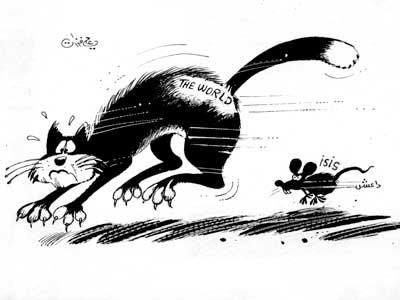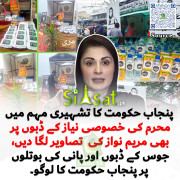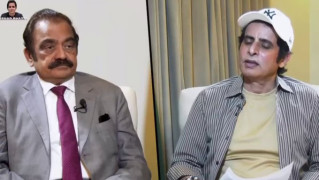hans
Banned
10 June: The IS (then known as ISIS) takes control of Mosul, Iraq's second largest city, and its surroundings. The Iraqi army and security forces flee Mosul and the entire north of Iraq without resisting. Several hundred thousand residents of Mosul, including both members of minority communities and Arab Sunni Muslims, flee the city, some for fear of the IS and others for fear of Iraqi government air strikes against the IS. Significant numbers of Christians, Shi'a Turkmen and Shi'a Shabak remain in their homes, in and around Mosul. Kurdish Peshmerga forces of the KRG take control of all areas not under IS control in the north of the country
13 June: After Friday prayer the IS distribute a communiqu containing 16 rules, including a ban on smoking and a ban on women leaving the house unless necessary. These and other rules are not immediately enforced but are implemented progressively in subsequent weeks. IS fighters destroy the Qabr al-Bint (Tomb of the Girl) monument in Mosul.
16 June: IS takes control of Tal 'Afar, a large town west of Mosul where the population (of up to 200,000) is almost all Turkmen. Most of the Turkmen Shi'a flee the city westwards to Sinjar and from there make their way to Erbil on their way to the capital, Baghdad, and further south to Najaf, Karbala and other Shi'a majority areas.
Third week of June: the IS remove a statue of the Virgin Mary from atop the Tahira (Immaculate) Church in Mosul and destroy the tombs of three well-known poets in the city centre.
25 June: Armed confrontations break out between IS fighters and Peshmerga forces east of Mosul, on the outskirts of the majority Christian town of Qaraqosh (also known as al-Hamdaniya), prompting the entire population of the town to flee. Most residents return after the clashes end three days later.
27 June: Two Chaldean Christian nuns and three orphans (two girls and one boy) are abducted in Mosul when they visit the orphanage (run by the nuns) which they had fled soon after 10 June. Many Christians who had fled Mosul but had continued to visit their homes and their relatives in the city stop visiting Mosul.
Late June/early July: Several men from the Turkmen and Shabak Shi'a communities are abducted and killed and their homes and places of worship are destroyed by the IS in Tal 'Afar, Mosul and surrounding areas, prompting most of the members of the two communities who had remained in IS-controlled areas to flee. Dozens of Yezidi border guards and soldiers are captured by IS fighters in north-western Iraq and taken across the border to IS-controlled areas in Syria, where they are pressured into converting to Islam. They are eventually released on payment of a ransom.
14 July: The two Christian nuns and three orphan children abducted on 27 June are released unharmed but report having been pressured into converting to Islam by some of their captors.
4 July: The two Christian nuns and three orphan children abducted on 27 June are released unharmed but report having been pressured into converting to Islam by some of their captors.
18 July: Christian residents of Mosul who had remained in the city flee after having been given an ultimatum by IS fighters two days earlier to either convert to Islam, pay jizya (a tax historically levied on non-Muslim subjects) leave or be killed. Many tell Amnesty International that they were robbed of money and jewellery by IS fighters as they left the city.
3 August: IS fighters attack towns and villages in the mostly Yezidi Sinjar region, in north-west Iraq, killing scores possibly hundreds of men, abducting more than 1,000 women, children and men, and forcing more than 200,000 people - the entire Yezidi population, as well as the remaining small number of Christian residents - to flee the area.
Most manage to flee to KRG areas but tens of thousands of Yezidis attempting to flee get trapped on Mount Sinjar, where they remain under siege for several days, surrounded by the IS and in dire conditions with hardly any food, water or shelter.
Several die due to lack of water and medical care and the rest are eventually able to escape with the help of Syrian Kurdish separatist fighters from the People's Protection Units, who open a safe passage for them off the mountain, through Syria and into the KRG region of northern Iraq. Some who do not manage to flee remain trapped in the Sinjar region and unable to leave. Thousands of Yezidi fighters and an unknown number of Yezidi civilian residents of villages on Mount Sinjar remain on the mountain area, determined to prevent the IS from taking control of the mountain area.
6-7 August: IS fighters storm and take control of more towns and villages north-east of Mosul, displacing tens of thousands of Christians, Yezidis and members of other minorities living in the area. Some who do not manage to flee remain trapped and unable to leave. Among those displaced from the area are thousands who were sheltering there after having fled their homes in surrounding areas in previous weeks, including thousands who were sheltering in a camp for internally displaced people (IDPs) in the al-Khazer/Kalak area, half way between Mosul and the KRG capital, Erbil.
15 August: IS fighters kill scores, possibly hundreds of Yezidi men and abduct hundreds of women, children and men in the village of Kocho (also known as Kuju), south of the town of Sinjar. These residents have been trapped in the village, unable to leave since 3rd aug.
22 August: IS fighters abduct a three-year-old girl, two teenage boys and a 20-year-old woman all Christians as they and their families are finally allowed to leave al-Hamdaniya area, where they had been trapped in their homes for the previous two weeks. They remain unaccounted for.
Source: Amnesty

13 June: After Friday prayer the IS distribute a communiqu containing 16 rules, including a ban on smoking and a ban on women leaving the house unless necessary. These and other rules are not immediately enforced but are implemented progressively in subsequent weeks. IS fighters destroy the Qabr al-Bint (Tomb of the Girl) monument in Mosul.
16 June: IS takes control of Tal 'Afar, a large town west of Mosul where the population (of up to 200,000) is almost all Turkmen. Most of the Turkmen Shi'a flee the city westwards to Sinjar and from there make their way to Erbil on their way to the capital, Baghdad, and further south to Najaf, Karbala and other Shi'a majority areas.
Third week of June: the IS remove a statue of the Virgin Mary from atop the Tahira (Immaculate) Church in Mosul and destroy the tombs of three well-known poets in the city centre.
25 June: Armed confrontations break out between IS fighters and Peshmerga forces east of Mosul, on the outskirts of the majority Christian town of Qaraqosh (also known as al-Hamdaniya), prompting the entire population of the town to flee. Most residents return after the clashes end three days later.
27 June: Two Chaldean Christian nuns and three orphans (two girls and one boy) are abducted in Mosul when they visit the orphanage (run by the nuns) which they had fled soon after 10 June. Many Christians who had fled Mosul but had continued to visit their homes and their relatives in the city stop visiting Mosul.
Late June/early July: Several men from the Turkmen and Shabak Shi'a communities are abducted and killed and their homes and places of worship are destroyed by the IS in Tal 'Afar, Mosul and surrounding areas, prompting most of the members of the two communities who had remained in IS-controlled areas to flee. Dozens of Yezidi border guards and soldiers are captured by IS fighters in north-western Iraq and taken across the border to IS-controlled areas in Syria, where they are pressured into converting to Islam. They are eventually released on payment of a ransom.
14 July: The two Christian nuns and three orphan children abducted on 27 June are released unharmed but report having been pressured into converting to Islam by some of their captors.
4 July: The two Christian nuns and three orphan children abducted on 27 June are released unharmed but report having been pressured into converting to Islam by some of their captors.
18 July: Christian residents of Mosul who had remained in the city flee after having been given an ultimatum by IS fighters two days earlier to either convert to Islam, pay jizya (a tax historically levied on non-Muslim subjects) leave or be killed. Many tell Amnesty International that they were robbed of money and jewellery by IS fighters as they left the city.
3 August: IS fighters attack towns and villages in the mostly Yezidi Sinjar region, in north-west Iraq, killing scores possibly hundreds of men, abducting more than 1,000 women, children and men, and forcing more than 200,000 people - the entire Yezidi population, as well as the remaining small number of Christian residents - to flee the area.
Most manage to flee to KRG areas but tens of thousands of Yezidis attempting to flee get trapped on Mount Sinjar, where they remain under siege for several days, surrounded by the IS and in dire conditions with hardly any food, water or shelter.
Several die due to lack of water and medical care and the rest are eventually able to escape with the help of Syrian Kurdish separatist fighters from the People's Protection Units, who open a safe passage for them off the mountain, through Syria and into the KRG region of northern Iraq. Some who do not manage to flee remain trapped in the Sinjar region and unable to leave. Thousands of Yezidi fighters and an unknown number of Yezidi civilian residents of villages on Mount Sinjar remain on the mountain area, determined to prevent the IS from taking control of the mountain area.
6-7 August: IS fighters storm and take control of more towns and villages north-east of Mosul, displacing tens of thousands of Christians, Yezidis and members of other minorities living in the area. Some who do not manage to flee remain trapped and unable to leave. Among those displaced from the area are thousands who were sheltering there after having fled their homes in surrounding areas in previous weeks, including thousands who were sheltering in a camp for internally displaced people (IDPs) in the al-Khazer/Kalak area, half way between Mosul and the KRG capital, Erbil.
15 August: IS fighters kill scores, possibly hundreds of Yezidi men and abduct hundreds of women, children and men in the village of Kocho (also known as Kuju), south of the town of Sinjar. These residents have been trapped in the village, unable to leave since 3rd aug.
22 August: IS fighters abduct a three-year-old girl, two teenage boys and a 20-year-old woman all Christians as they and their families are finally allowed to leave al-Hamdaniya area, where they had been trapped in their homes for the previous two weeks. They remain unaccounted for.
Source: Amnesty






































